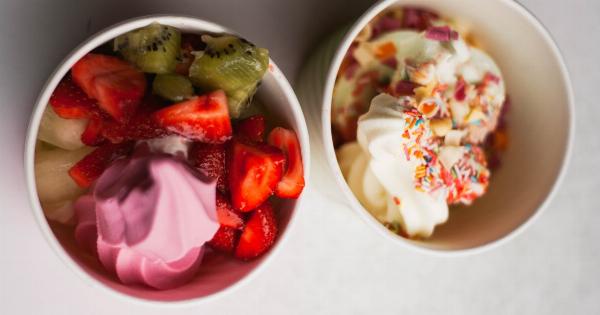Who doesn’t love to indulge in a scoop of ice cream on a hot summer day? But did you know that the sugar in ice cream can have a negative impact on your teeth? The sugar in ice cream can lead to tooth decay, which can result in cavities and even tooth loss.
But don’t worry – there are ways to enjoy your ice cream without damaging your teeth. In this article, we’ll discuss some tips on how to save your teeth from ice cream sugar effects.
Tip #1: Choose Sugar-Free or Low-Sugar Ice Cream
The easiest way to avoid the sugar in ice cream is to choose sugar-free or low-sugar options. Many brands now offer ice cream with no added sugar or with reduced sugar content.
Make sure to read the labels carefully and choose the option with the lowest sugar content.
Tip #2: Brush Your Teeth Before Eating Ice Cream
Brushing your teeth before eating ice cream can help remove any plaque or bacteria that may be on your teeth, reducing the risk of tooth decay. Brushing your teeth will also make your teeth less susceptible to the harmful effects of sugar in ice cream.
Tip #3: Rinse Your Mouth After Eating Ice Cream
Rinsing your mouth with water after eating ice cream can help wash away any sugar that may be left on your teeth. This reduces the amount of time the sugar has to interact with the bacteria in your mouth and lowers the risk of tooth decay.
You can also try rinsing your mouth with an antibacterial mouthwash to kill any harmful bacteria in your mouth.
Tip #4: Use a Straw to Drink Milkshakes
When drinking milkshakes or other thick, sugary drinks, use a straw. This will reduce the amount of time the sugar spends in contact with your teeth and lower the risk of tooth decay.
Make sure to position the straw towards the back of your mouth, so the liquid doesn’t come into contact with your teeth.
Tip #5: Eat Ice Cream as a Dessert
Eating ice cream as a dessert after a meal, rather than as a snack, can help reduce the risk of tooth decay. This is because your mouth produces more saliva during meal times, which helps neutralize the acid produced by the bacteria in your mouth.
Eating ice cream after a meal means there will be more saliva in your mouth to help protect your teeth.
Tip #6: Chew Sugar-Free Gum After Eating Ice Cream
Chewing sugar-free gum after eating ice cream can help increase the amount of saliva in your mouth, which helps neutralize the acid produced by the bacteria in your mouth.
This reduces the risk of tooth decay and can help protect your teeth from the harmful effects of sugar in ice cream.
Tip #7: Limit Your Intake of Ice Cream
Finally, the most effective way to save your teeth from ice cream sugar effects is to limit your intake of ice cream. Consuming large amounts of ice cream can increase the risk of tooth decay and other dental problems.
Enjoy ice cream in moderation, and try to choose sugar-free or low-sugar options whenever possible.
Conclusion
Ice cream is a delicious treat that many of us enjoy, but it’s important to be mindful of its potential effects on our teeth.
By following these tips and making smart choices when it comes to ice cream, you can enjoy this tasty treat without putting your dental health at risk.



























